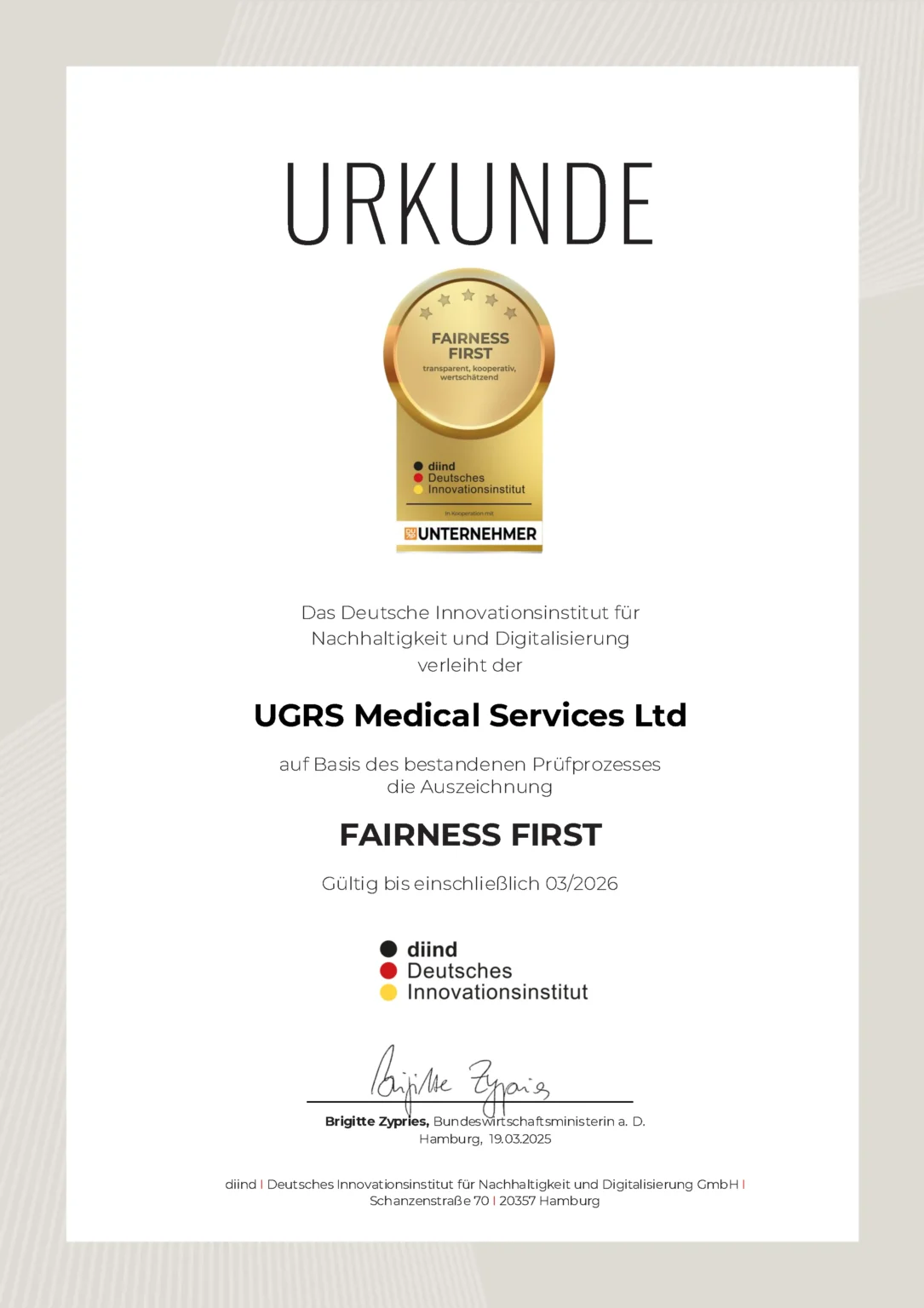Home » UGRS.Blog – Latest Topics & Insights on Urology and Penis Enlargement » What helps with incontinence in men? Causes, therapy & tips for everyday life
What helps with incontinence in men? Causes, therapy & tips for everyday life
Many men don’t like to talk about it – but urinary incontinence affects millions of men. Whether after prostate surgery, age-related or due to other causes: The good news is that there are numerous options for treatment and support in everyday life. In this article, we show you what helps and when you should seek medical advice.
What forms of incontinence are there in men?
Not all urinary incontinence is the same. Knowing the exact form is crucial for the right treatment:
1. stress incontinence:
- Urine loss during physical exertion (coughing, laughing, sport)
- Frequently after prostate surgery
2. urge incontinence:
- Sudden, strong urge to urinate
- Often with overactive bladder or neurological causes
3. mixed form:
- Combination of stress and urge incontinence
4. overflow incontinence:
- Bladder empties incompletely, constant dribbling
- Often for prostate enlargement
What are the causes of urinary incontinence in men?
There are many reasons for this – depending on age, previous illnesses and lifestyle:
- Prostate operations (e.g. TURP, radical prostatectomy)
- Neurological diseases such as Parkinson's or multiple sclerosis
- Weak pelvic floor
- Age-related changes
- Chronic cystitis or tumor diseases
Cause
Possible form of incontinence
Prostate surgery
Stress incontinence
Nerve damage
Urge or overflow incontinence
Old age, weak pelvic floor
Mixed form
Bladder infection/tumor
Urge incontinence
What treatment options are available?
There are different therapeutic approaches depending on the cause and severity:
1. pelvic floor training
- Guided by physiotherapists
- Strengthening the muscles for better urinary closure
2. medication
- Anticholinergics for urge incontinence
- Beta-3 agonists or desmopressin for nocturnal urinary urgency
3. surgical procedures
- Sling systems to support the urethral sphincter muscle
- Artificial sphincter for severe progression
4. neuromodulation
- Stimulation of the nerves that control the bladder (e.g. sacral nerve stimulation)
5. behavioral therapy
- Bladder training, toilet plans, fluid management
How can you cope with everyday life with incontinence?
Even if incontinence cannot be cured immediately, there are many strategies for coping with everyday life with confidence:
- Incontinence products: discreet pads, pants or catheters
- Drinking behavior: drink regularly and consciously, reduce in the evening
- Toilet training: regular times prevent uncontrolled urination
- Clothing: dark, comfortable clothing can provide security
- Exchange: self-help groups or advice from specialists
When should you see a urologist?
Do not hesitate to seek medical advice if you:
- regularly lose urine unintentionally
- Are afraid of “accidents” in public
- already use aids, but are dissatisfied
- you feel restricted by the complaints
A urologist will clarify which form of incontinence is present and which therapy will help – discreetly and solution-oriented.
Conclusion: You are not alone - and there is help
Urinary incontinence is treatable – and no reason to be ashamed. The sooner you take action, the better. Whether it’s pelvic floor muscle training, modern medication or surgical help: together with your urologist, you will find the right approach.
The medical information provided on this website is for general information purposes only and does not replace a personal consultation with our doctors. As a tertiary medical center, we are also available for second opinions.
© Copyright Jörg Hagen, Doctor
About the author
Jörg Hagen, doctor
The author Jörg Hagen has been the medical director of UGRS International Germany since 1995 and has over 30 years of experience in penis enlargement and complex urological issues. He is regarded as one of the leading experts in the interests of patients in Europe. His international activities, excellent diagnostics and legal successes in patient rights make his assessments particularly well-founded. Patients appreciate his scientifically based, discreet and trustworthy care. His articles are based on many years of practice and well-founded information at the highest level.
This content is for general information purposes only and does not constitute medical advice, diagnosis or treatment recommendations. It is in no way a substitute for a professional examination or treatment by a licensed physician. If you have any health complaints or uncertainties, please always consult a medical professional – especially if you have any questions about intimate surgery or sexual health.










